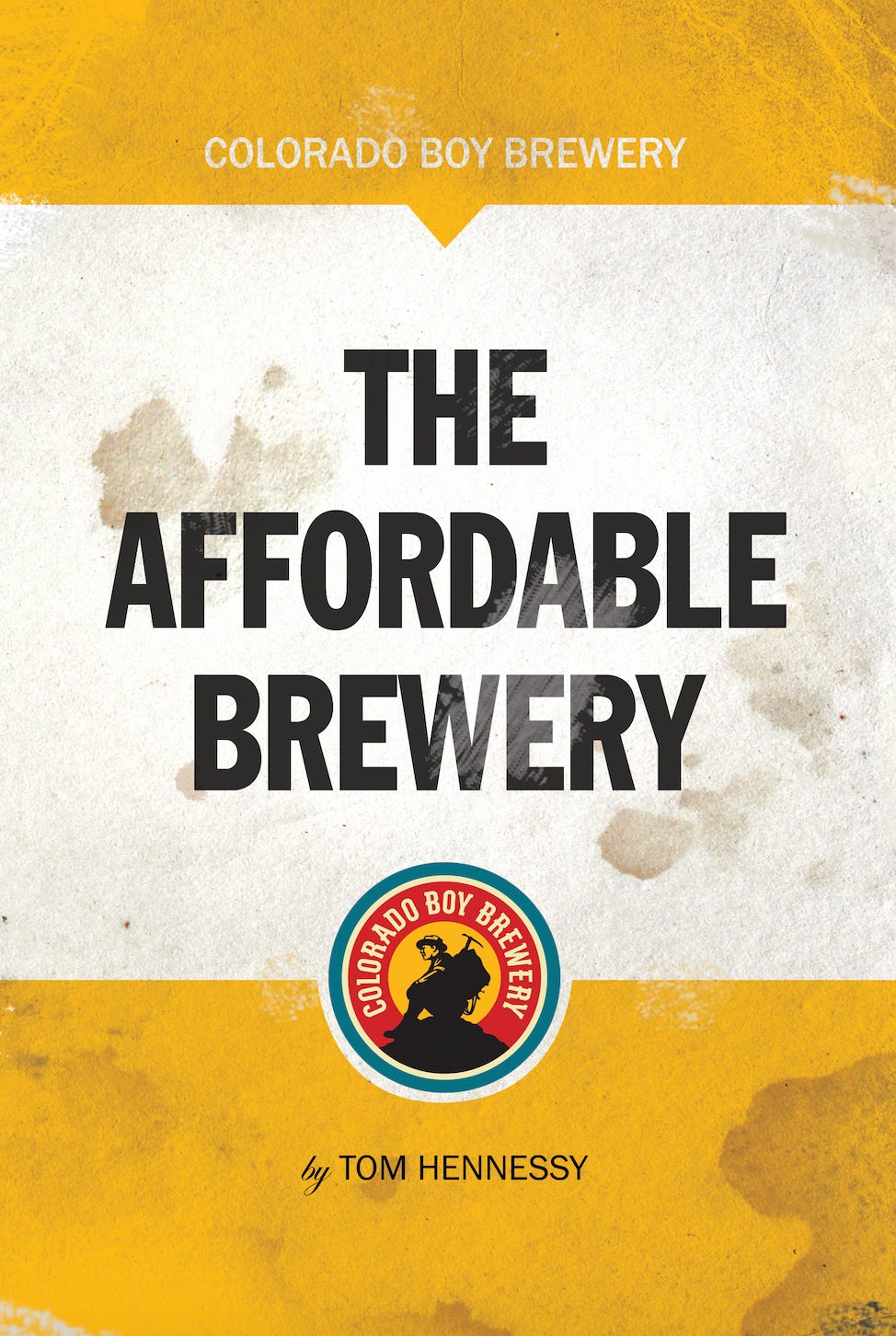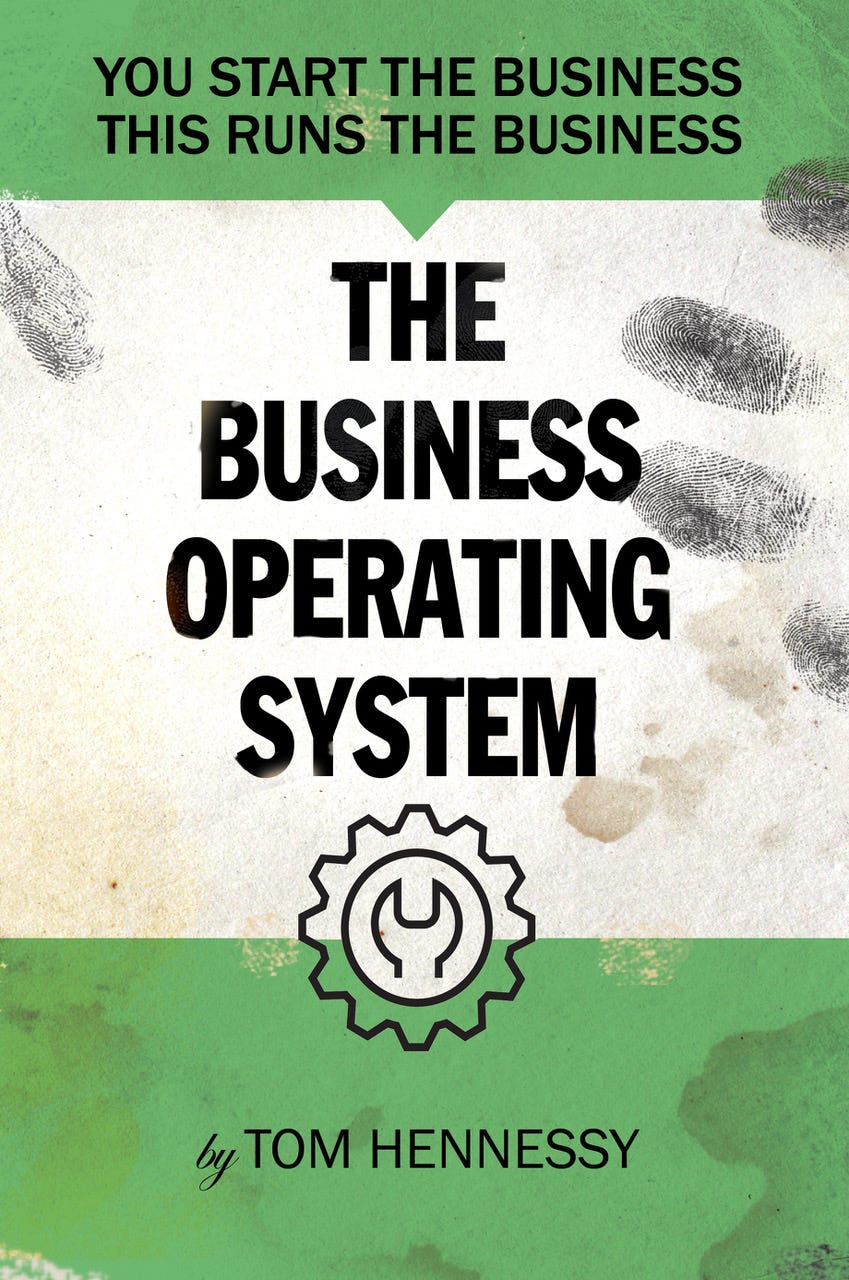Ask Dr. Frankenbrew
7/23/23
I’m sure you’ve noticed but we are in the middle of a big culling of the herd, so to speak. Anchor gets the news, but it’s all the small independent breweries that close for one reason or another. Possible reasons?
Never recovered sales from Covid
spent too much money to open their business in the first place
Just burnout! Trying to find staff, equipment breakdowns, never getting a day off.
These are all real and as I keep hammering, a good business operating system may at least help you avoid burnout. A Frankenbrew philosophy will help with keeping the cost of going into business at least reasonable. As for Covid? Well, in that case you would need to be able to survive on not much money until you got through all that.
When we opened the first Colorado Boy in Ridgway, it was December 26, 2008. The economy was in free-fall and it took about four years to come back. Thankfully my wife Sandy and I had enough savings to weather it, but that was unusual.
So these question and answer sessions can address many of the above concerns. I hope I get to all of them.
This week I’ve got a multiple question so I will put my thoughts in between the questions.
Question: I am planning a farm brewery on my property using an old dairy barn that will be converted into the tasting room, hayloft seating and all. With that being said, I think I want to serve wood fired pizza, but is it easier to just rent out the space to an existing pizza restaurant in town as a second location, or develop my own kitchen? Also, wood fired pizza is probably the best artisan pizza you can get, but is it worth the hassle of maintaining a fire the whole time? Would you instead do something else like a hot sandwich press?
Answer: Don’t farm out your food operation. Serving food can be profitable and you will have control compared to a food truck that may or may not show up, or may make your customers sick if they aren’t the cleanest food truck. Wood oven pizza is great and you would do fantastic with it, but running an oven every day, you will go through a chord and a half per month. It also has to be a hard wood like oak, which is no big deal in Virginia.
With no experience, then I think what I would do is copy In ‘n Out Burgers menu. You need a very small kitchen, which includes a grease hood, fire suppression system for it, a flat top griddle, A stand up freezer, and refrigerator, and a fryer. You can get this stuff on Craigslist or eBay pretty cheap. If you want to be even more simple, as you suggest, A sandwich prep table, and a panini press. You also still need a three compartment sink, hand sink, and maybe a slicer, though your food distributer can get you pre-prepped ingredients. I could go further into this of course.
Also, with a farm brewery, would you close during the winter months? I just can't picture someone sitting in a barn when it's 30 degrees out in Virginia during the month of January. How would you bring customers in when it's too cold to be outside? (the appeal of a farm brewery) Downstairs I plan to have more of a pub atmosphere, but the upstairs hayloft I want to feel more like a cabin in the woods with sofas, rugs, coffee tables, books / board games. Maybe I need a wood burning hearth to tie it all together for the winter? Winter is a low, how do you handle it in Colorado?
Answer: I am hoping that you have an insulated barn. If not you should. It will also help you in cooling on those hot sticky summer months. If it’s insulated keep it warm and cozy. Fire places are great and just looking at them can make you feel warm. I don’t know how many restaurants I go to in the winter with a fire place they don’t operate. At least make it a gas fireplace to give the illusion of warmth. This all goes into what I call the Oyster, and from what you said, you already have some great ideas.
I want to serve 4 traditional British beers on cask, being Virginia was a British colony. Any idea how to convert a keg washer into a cask washer, and then back again to kegs? I'm looking at the Blichmann keg washer - and Blichmann for my whole brewery to be honest (5bbl electric, 10bbl cellering tanks).
Answer: Now you’re talking. It fits perfectly with those cold winter months. I love cask ales!
I don’t know what your budget is for brewing equipment, and I have nothing against Blichmann, but a good 7 BBL system you can Frankenbrew will cost between $40,000 and $60,000 depending on how Frankenbrew you want to go. You don’t need 10 BBL tanks most likely. If you look at production statistics put out by the Brewers Association, you will see that 93% of the breweries (brewpubs and tasting room breweries) produce less than 1,000 BBL’s per year or less. Way less. On a 7 BBL system with two fermenters you will be fine. And since you are doing British style ales, they are fast to make, so if you use a yeast like we do, you will be brewing into your fermenter, fermenting, diacytal rest, cooling and transferring all in 6 days. Then another 5 to 6 days conditioning in your serving tank and you are good to go. More serving tanks in a cold room the better.
Speaking of cask, what are your thoughts on tapping a cask on Thursday, but to sell the cask completely out by Sunday, offer a price discount the closer the cask ale is to being no longer fresh. Like $6 Thursday and Friday, $5 Saturday, $4 Sunday. And have the wait staff really upsell the cask ale. It seems like a cool niche many smaller breweries could do, but don't offer. If done right, cask ale really is amazing.
Answer: I’ve written about this before. Yes if serving a true cask according to the Campaign for Real Ale, then expect it to only be good in the cask for about 2 days. What I prefer is to do what most of the cask ale breweries I have found in England and Scotland do. After conditioning and fining, rack into a keg, use a cask breather which will let a sip of CO2 into the keg to displace the beer taken out, and use a beer engine with a sparkler on the wand. You will pour a perfect pint every time and the beer will last as long as your regular carbonated ones. Do the other cask just on special occasions, but if you let your customers tap it - beware!
How much should I pay my employees? Let's say minimum wage is $15 an hour here. Should I go with that plus tips? More? Or a Salary? The livable wage is $19 an hour here. Median income is 35, family is 52. I want to retain great employees, but also have part time help during peak sale seasons. I also have no clue what my initial actual cash flow will be, so I don't want to bankrupt myself with payroll either for years 1-3.
Answer: Wow you’re killing me. This is a tough one. Pay as much as you can get away with while keeping your prices still reasonable. Have a service system that will allow you to run with a smaller staff. $19, is not too much really if you add tips back in. Here in Colorado, the minimum wage is over $12. We pay our servers that, and if you pay regular minimum wage instead of server minimum wage, they can share tips with the kitchen. So they make most of the tips, and even the dishwasher makes tips too. We also collect most of the tips and it all goes on their paychecks (since almost all sales are credit card). This way the staff gets to see what they are really making. Because of this even our dishwashers are making over $19. The servers are averaging over $30, and the cooks in the mid-twenties. But what really keeps employees is to treat them with the respect they deserve and rarely get in this business.
Your cash flow will surprise you, as you are making deposits every day. We forget that because we become accustomed to shelling out money every day, and so we get used to that burn rate. But once money is coming in it will be a different story. It all depends on how fast your sales ramp up.
I hope I wasn’t too long winded but those were big questions. Please keep them coming though. I think sometimes these posts raise more questions then they answer.
Also, if you have a picture of yourself brewing on a Frankenbrew system, send it to me with your permission and I’ll post it to the top of these articles.






Great questions and amazing answers!
Regarding the farm/barn brewery, if that commenter is on here I would be interested in learning more about how waste water and all the other things that will go down the floor drain will be handled. I assume this brewery would be on septic and would love to know how a brewery could work on a septic system.
Thanks as always!